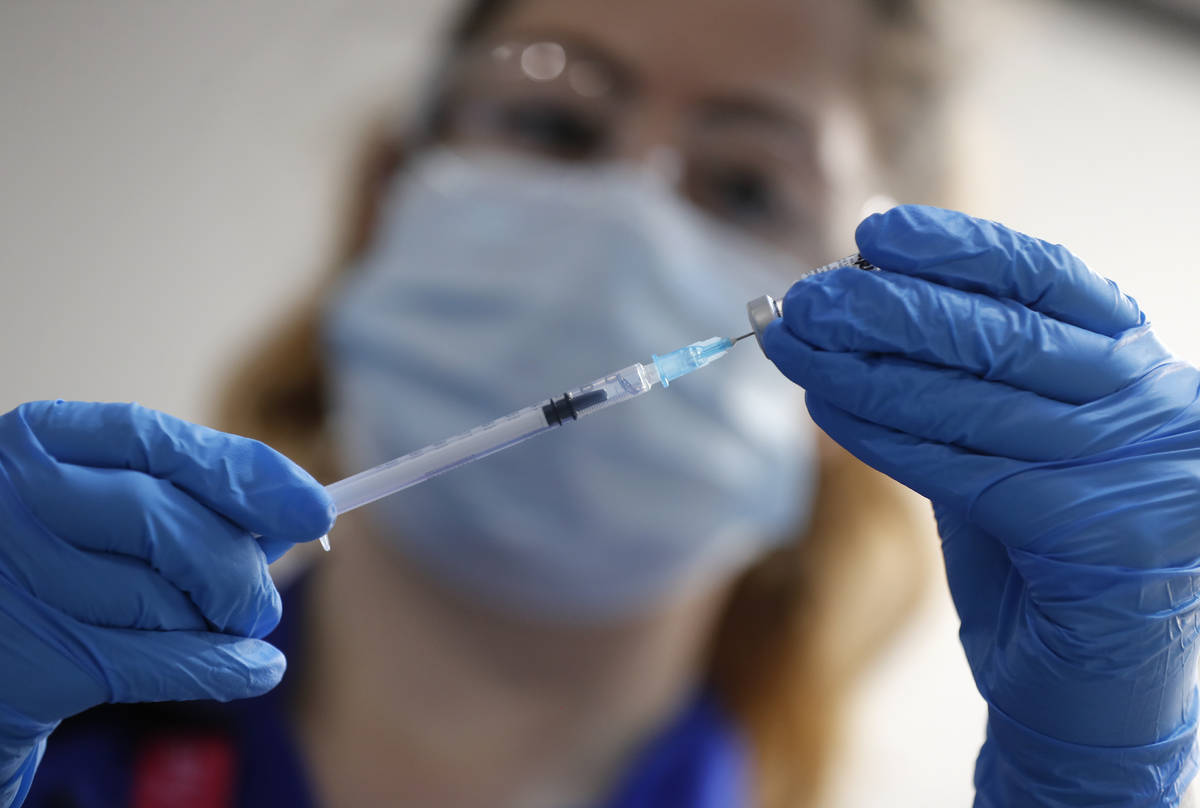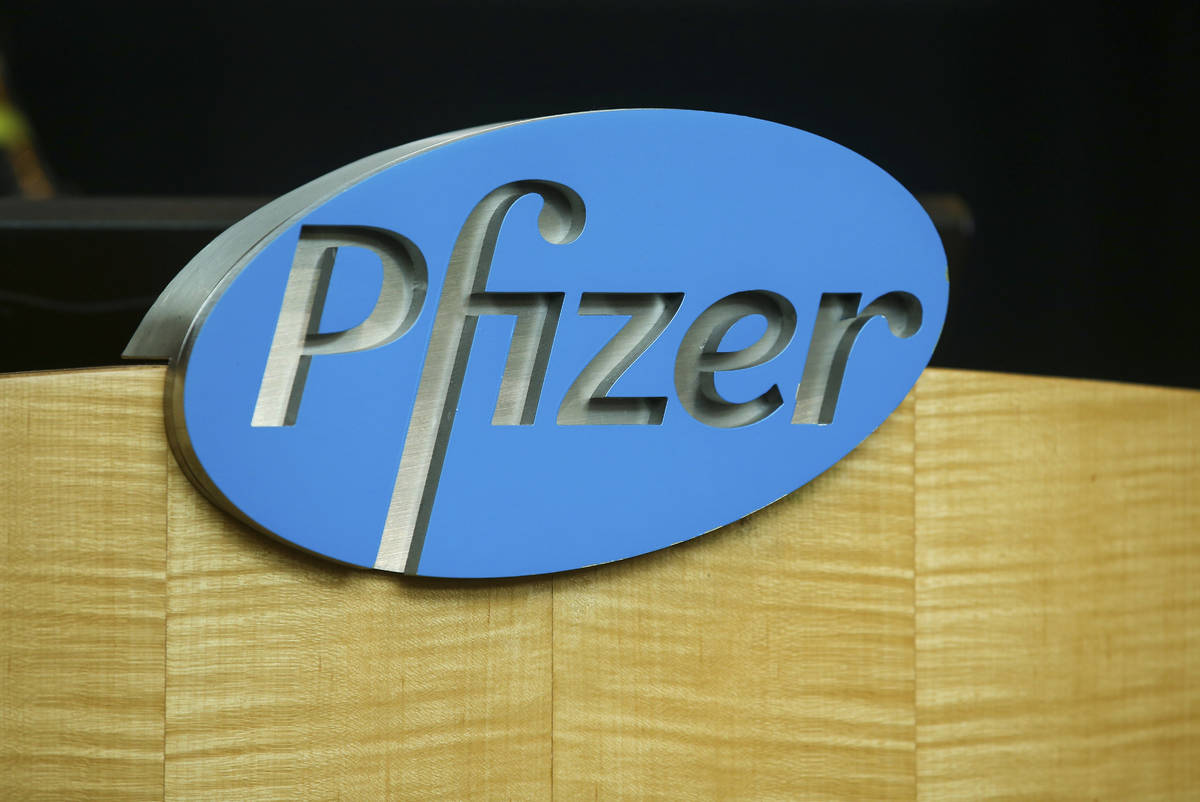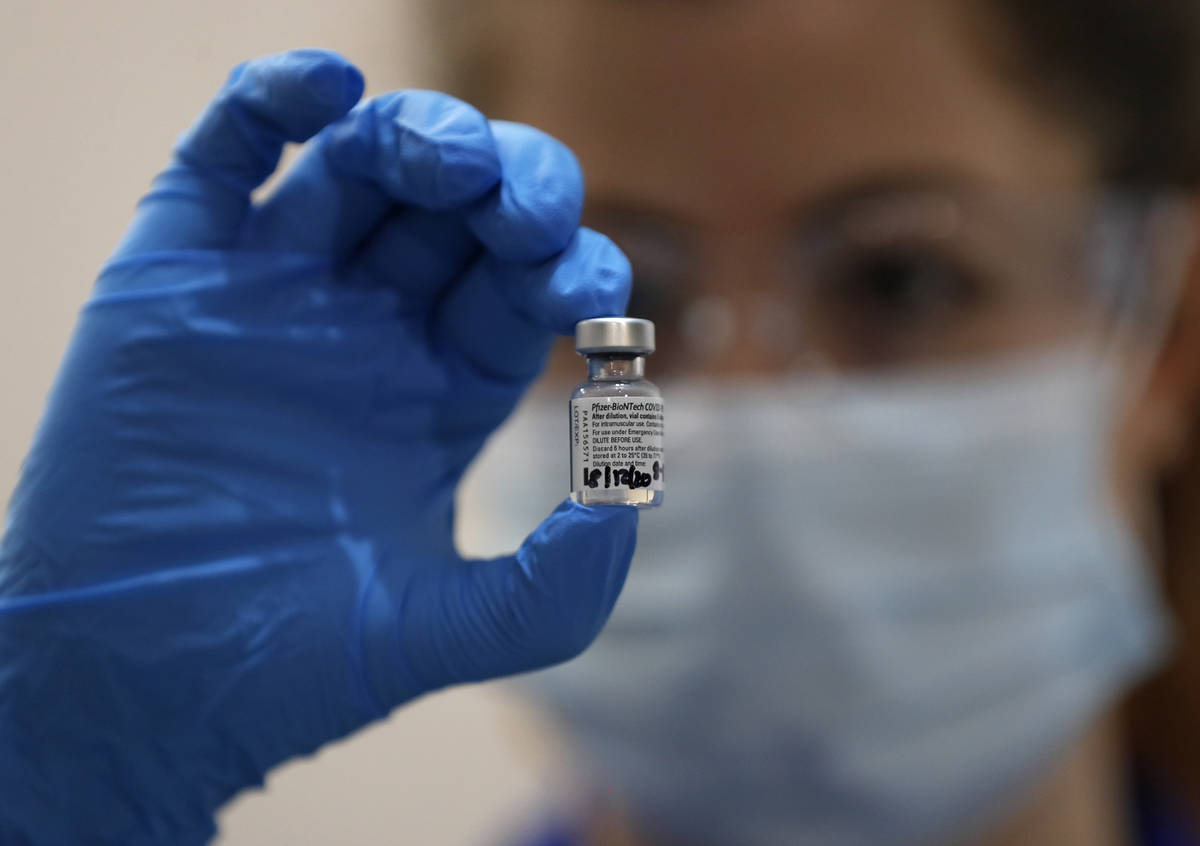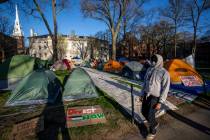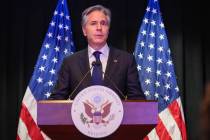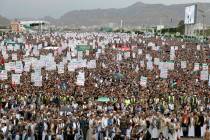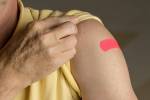UK studying if allergic reactions linked to Pfizer vaccine
LONDON — British regulators warned Wednesday that people who have a history of serious allergic reactions shouldn’t receive the new Pfizer-BioNTech vaccine as they investigate two adverse reactions that occurred on the first day of the country’s mass vaccination program.
The U.K.’s Medical and Healthcare Products Regulatory Agency is looking into whether the reactions were linked to the vaccine. The two people affected were staff members with the National Health Service who had a history of allergies, and both are recovering. Authorities have not specified what their reactions were.
In the meantime, the regulator has issued the warning for anyone who has had a significant allergic reaction to a vaccine, medicine or food. That includes anyone who has been told to carry an adrenaline shot or others who have had potentially fatal allergic reactions.
“As is common with new vaccines the MHRA have advised on a precautionary basis that people with a significant history of allergic reactions do not receive this vaccination after two people with a history of significant allergic reactions responded adversely yesterday,” Professor Stephen Powis, medical director for the NHS in England, said in a statement. “Both are recovering well.”
The medical regulatory agency also said vaccinations should not be carried out in facilities that don’t have resuscitation equipment.
Manufacturers investigating
Pfizer and BioNTech said they were working with investigators “to better understand each case and its causes.”
Late-stage trials of the vaccine found “no serious safety concerns,” the companies said. More than 42,000 people have received two doses of the shot during those trials.
“In the pivotal phase three clinical trial, this vaccine was generally well tolerated with no serious safety concerns reported by the independent Data Monitoring Committee,” the companies said.
Documents published by the two companies showed that people with a history of severe allergic reactions were excluded from the trials, and doctors were advised to look out for such reactions in trial participants who weren’t previously known to have severe allergies.
Even in non-emergency situations, health authorities must closely monitor new vaccines and medications because studies in tens of thousands of people can’t detect a rare risk that would affect 1 in 1 million.
Dr. Peter Openshaw, a professor of experimental medicine at Imperial College London, said there is a “very small” chance of an allergic reaction to any vaccine.
The MHRA last week gave emergency authorization to the Pfizer-BioNTech vaccine, making Britain the first country to allow its widespread use.
Poll: Half of Americans will get shot
As states frantically prepare to begin months of vaccinations that could end the pandemic, a new poll finds only about half of Americans are ready to roll up their sleeves when their turn comes.
The survey from The Associated Press-NORC Center for Public Affairs Research shows about a quarter of U.S. adults aren’t sure if they want to get vaccinated against the coronavirus. Roughly another quarter say they won’t.
Many on the fence have safety concerns and want to watch how the initial rollout fares — skepticism that could hinder the campaign against the scourge that has killed nearly 290,000 Americans. Experts estimate at least 70% of the U.S. population needs to be vaccinated to achieve herd immunity, or the point at which enough people are protected that the virus can be held in check.
“Trepidation is a good word. I have a little bit of trepidation towards it,” said Kevin Buck, a 53-year-old former Maine from Eureka, California.
Buck said that he and his family probably will get vaccinated eventually, if initial shots go well.
“I think a lot of people are not sure what to believe, and I’m one of them,” he said.
Amid a frightening surge in COVID-19 that promises a bleak winter across the country, the challenge for health authorities is to figure out what it will take to make people trust the shots that Dr. Anthony Fauci, the top U.S. infectious-disease expert, calls the light at the end of the tunnel.
“If Dr. Fauci says it’s good, I will do it,” said Mary Lang, 71, of Fremont, California. She added: “Hopefully if enough of us get the vaccine, we can make this virus go away.”
Early data suggests the two U.S. frontrunners — one vaccine made by Pfizer and BioNTech and another by Moderna and the National Institutes of Health — offer strong protection.
Pentagon details initial plans
The Pentagon’s initial allotment of coronavirus vaccine will be administered at 16 defense sites in the United States and abroad, with health care workers, emergency service personnel and residents of military retirement homes getting top priority, officials said Wednesday.
Next in line, once follow-on supplies of vaccine becomes available, will be military personnel who provide “critical national capabilities,” such as nuclear weapons crews and cybersecurity forces, as well as certain military units getting ready to deploy.
The vaccinations will be voluntary because the Pfizer vaccine initially is to be made available on an emergency use basis. The shots could become mandatory later if vaccines are fully licensed by the Food and Drug Administration, the officials said.
A few dozen of the Pentagon’s leaders, including the acting defense secretary, Christopher Miller, and Gen. Mark Milley, chairman of the Joint Chiefs of Staff, are to be among those receiving early vaccinations, said Pentagon spokesman Jonathan Hoffman. Some of those leaders will get their shots in public in order to demonstrate the Pentagon’s confidence in the vaccine’s safety, he said.
The Pentagon is to received slightly fewer than 44,000 doses of the vaccine initially, he said. The timing depends on when the FDA gives the go-ahead for distribution and use of the Pfizer vaccine.
Canada OKs Pfizer vaccine
Canada’s health regulator on Wednesday approved Pfizer’s COVID-19 vaccine, days ahead of possible approval in the United States.
Health Canada posted on it is website that the vaccine made by U.S. drugmaker Pfizer and Germany’s BioNTech is authorized. The vaccine already has been approved by the United Kingdom and Bahrain and officials have said they expect U.S. approval within days.
“This is a critical milestone,” Dr. Supriya Sharma, chief medical advisor at Health Canada.
“Canadians can have confidence in our rigorous review process, and that the vaccine was only authorized only after a thorough assessment of the evidence demonstrated that it met Canada’s strict standards for safety, efficacy and quality.”
Health Canada said terms of the approval require the manufacturer to continue providing information on the safety, efficacy and quality of the vaccine.
Canada is set to receive up to 249,000 doses this month and Canadian officials expect to administer them within days.
US regulators evaluate Pfizer vaccine
U.S. regulators on Tuesday also released their first scientific evaluation of Pfizer’s COVID-19 vaccine and confirmed it offers strong protection. Vaccines are emerging from an all-out worldwide race and are reaching the market less than a year after the virus was even identified — a remarkable scientific achievement that shaved years off the usual process.
The encouraging developments come as the coronavirus continues surging across much of the world. The scourge has claimed more than 1.5 million lives, including over 285,000 in the U.S., the highest toll of any country. U.S. Food and Drug Administration scientists are meeting on Thursday, when the agency’s independent advisers will debate if the evidence is strong enough to recommend vaccinating millions of Americans.
“It is encouraging to see that our mRNA vaccine is now authorized in Canada. Following U.K. and Bahrain, it is the third country to approve use of our vaccine within a week,” said Sean Marett, BioNTech’s chief business and chief commercial officer.
U.S. FDA scientists reanalyzed data and found the Pfizer vaccine appears safe and more than 90% effective across patients of different ages, races and underlying health conditions.



